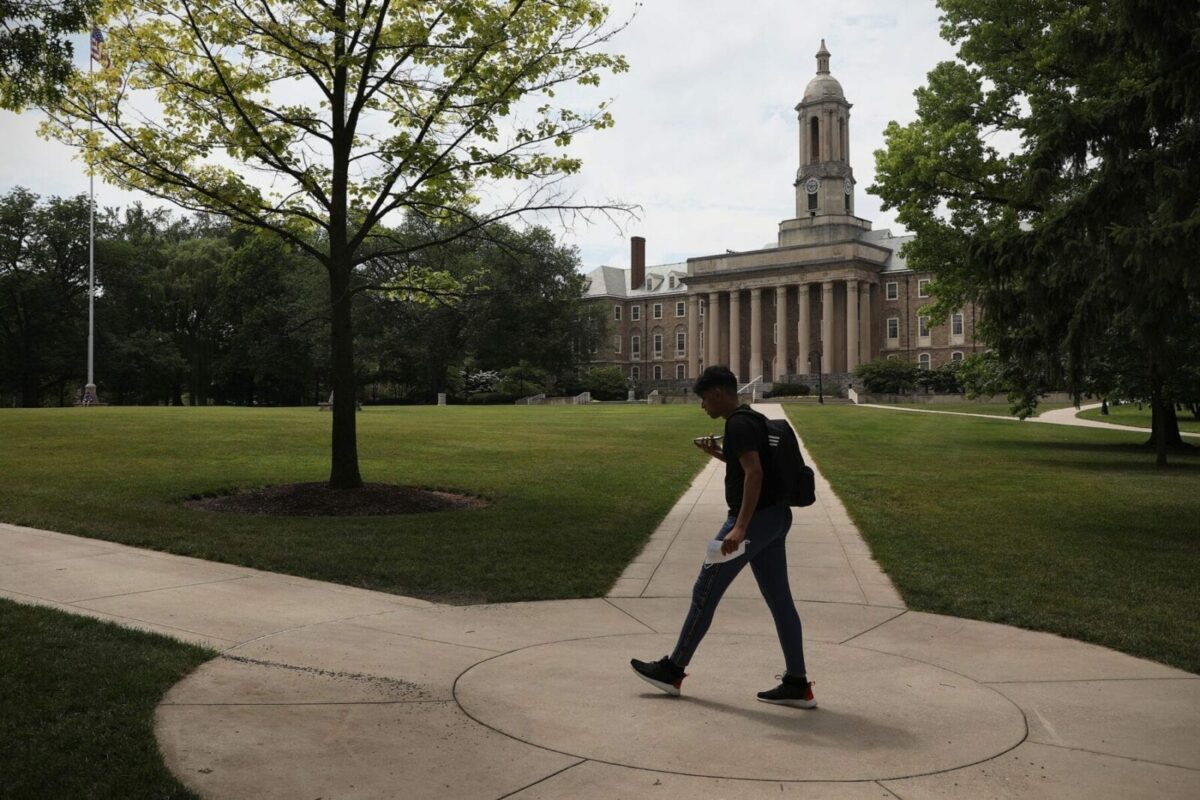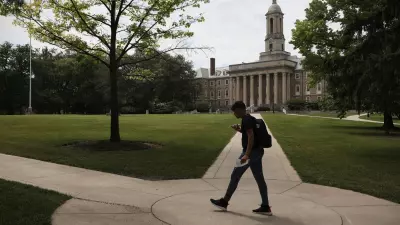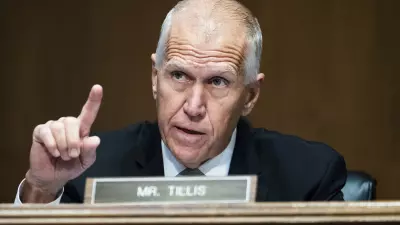Spotlight PA is an independent, non-partisan newsroom powered by The Philadelphia Inquirer in partnership with PennLive/The Patriot-News and other news organizations across Pennsylvania. Sign up for our free weekly newsletter.

HARRISBURG — Pennsylvania State University, the behemoth public research university with enrollment nearing 100,000, is forcing students to sign a liability agreement and assume all risk of COVID-19 prior to returning to campus for the fall semester.
“I assume any and all risk of exposure to COVID-19 that may result from attending Penn State, or participating in Penn State activities,” the compact says, “and I acknowledge that exposure or infection may result in personal injury, illness, permanent disability, or death.”
Some students and faculty have started speaking out against Penn State’s plans, saying the university’s decision to bring students back to campus — and hold half of all classes with at least some in-person instruction — both disregards the well-being of the Penn State community and threatens the sparse health-care resources available to local residents.
And the compact isn’t helping to quell concerns.
“They’re basically saying they cannot guarantee our safety,” said Maggie Hernandez, a graduate student in anthropology and an organizer with the university’s Coalition of Graduate Employees.
Penn State is “waiving any responsibility they have,” Hernandez said. “They’re placing the blame on students.”
Wyatt DuBois, a spokesperson for Penn State, said the university is aware of the “anxieties and uncertainties” members of the Penn State community are expressing about the compact.
“We feel it is important that students and families understand there is COVID-19 risk, everywhere in our daily lives,” DuBois said, adding that “Penn State has committed to meeting and exceeding the guidance of health experts.”
Penn State isn’t alone in asking students to assume risk of COVID-19. A handful of colleges and universities across the country have started to ask students to sign liability waivers in advance of returning to campus.
But Penn State’s compact is “on the more extreme end,” said Heidi Li Feldman, a professor at Georgetown University Law Center who focuses on legal liability.
Asked what she would recommend to Penn State students, Feldman responded unequivocally: “The first thing I would urge is that they do not sign this.”
Feldman said the university is making it “quite clear” with its language that it is not undertaking any commitment of responsibility.
Penn State has said it is taking extensive precautions in advance of the semester.
The university is asking all faculty, staff, and students to quarantine for at least seven days prior to returning to campus. The school is also reaching out to 30,000 people coming from areas with a high prevalence of COVID-19 for pre-arrival testing.
Penn State’s plans also include surveillance testing for about 700 asymptomatic people each day, and the designation of three residence halls as “isolation spaces” for on-campus students diagnosed with COVID-19 or suspected to have the disease.
According to the compact, undergraduate and graduate students must acknowledge Penn State has “issued rules and precautions that may, or may not, be effective in mitigating the spread of COVID-19.”
Students must follow specific requirements, the compact says, like being tested “as directed,” following specific protocols in the event of a positive test, cooperating with contact tracers, respecting social distancing requirements, and wearing masks indoors.
Failure to comply with these requirements “may subject you to disciplinary action, including suspension or expulsion,” according to the compact, which ends with only one option for students to proceed: a small “I agree” button at the bottom of the fine print.
“You cannot access anything unless you sign this,” Hernandez said, noting that agreeing to the compact is necessary before entering the university’s online portal, which provides access to class registration and information about finances and health insurance.
Feldman, the law professor, recommended students reach out to Penn State in good faith and explain they want to enroll but hope to see a modified agreement. At a minimum, she said, contacting the university now with concerns about the compact will better position students later, should they need to file a claim.
“I would strongly advise against [signing] this,” Feldman said. “There are other universities. There will be other semesters.”
At the University of Pittsburgh, which is reopening its campus in waves, students have to sign a “community compact” and “student acknowledgement” upon return to campus, but they aren’t asked to waive liability, spokesperson Kevin Zwick said.

Zack Furness, an associate professor of communications at Penn State’s Greater Allegheny campus, said he’s concerned about the way Penn State’s compact was “foisted onto students without a clear explanation of what signing it entails, legally or otherwise.”
Furness added he’s concerned about whether parents were informed.
Worries about the coronavirus extend beyond the on-campus impact, said Hernandez, the graduate student. An influx of students will put the local State College community at risk, she said.
“How can the university, in good conscience, allow tens of thousands of students to come back to our really small town?” Hernandez said.
At a July 30 town hall, Kevin Black, interim dean of Penn State’s College of Medicine, explained what Penn State would consider to shift to fully remote learning.
Black said the school is looking at data points like the number of positive cases both on campus and in the surrounding community, the number of students in quarantine or isolation, and the number of nearby hospitalizations related to COVID-19.
“For example, we know that in University Park, the capacity of Mount Nittany Medical Center for COVID-19 patients is, on average, one COVID-19 admission per day on a sustained basis,” Black said.
On Tuesday, the University of Pennsylvania reversed course and announced it will not accommodate on-campus housing except in limited circumstances, even going so far as to say, “For the safety of students and the broader community, we are encouraging all other students not to return to Philadelphia.”
Mariam Taleb is a graduate student at Penn State studying entomology and international agriculture and development. She said she has been a student organizer in various capacities on campus and has generally felt that students have “been able to find ways to be heard and ask for change, and make problems visible, often with the support of faculty.”
“But what the university has gotten really good at,” Taleb said, “is instilling a sense of powerlessness.”
And the COVID-19 compact, she said, “is a fantastic example of that.”
100% ESSENTIAL: Spotlight PA relies on funding from foundations and readers like you who are committed to accountability journalism that gets results. If you value this reporting, please give a gift today at spotlightpa.org/donate.







